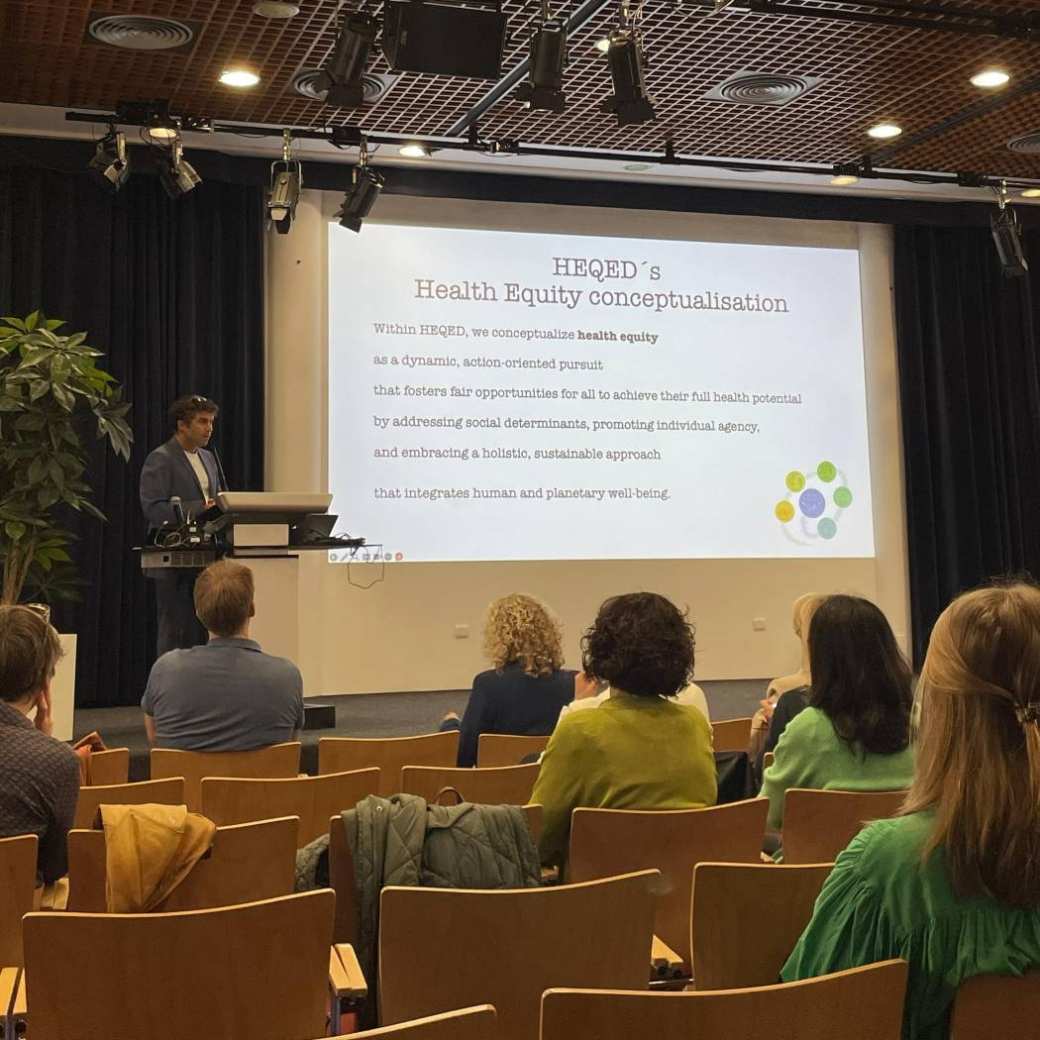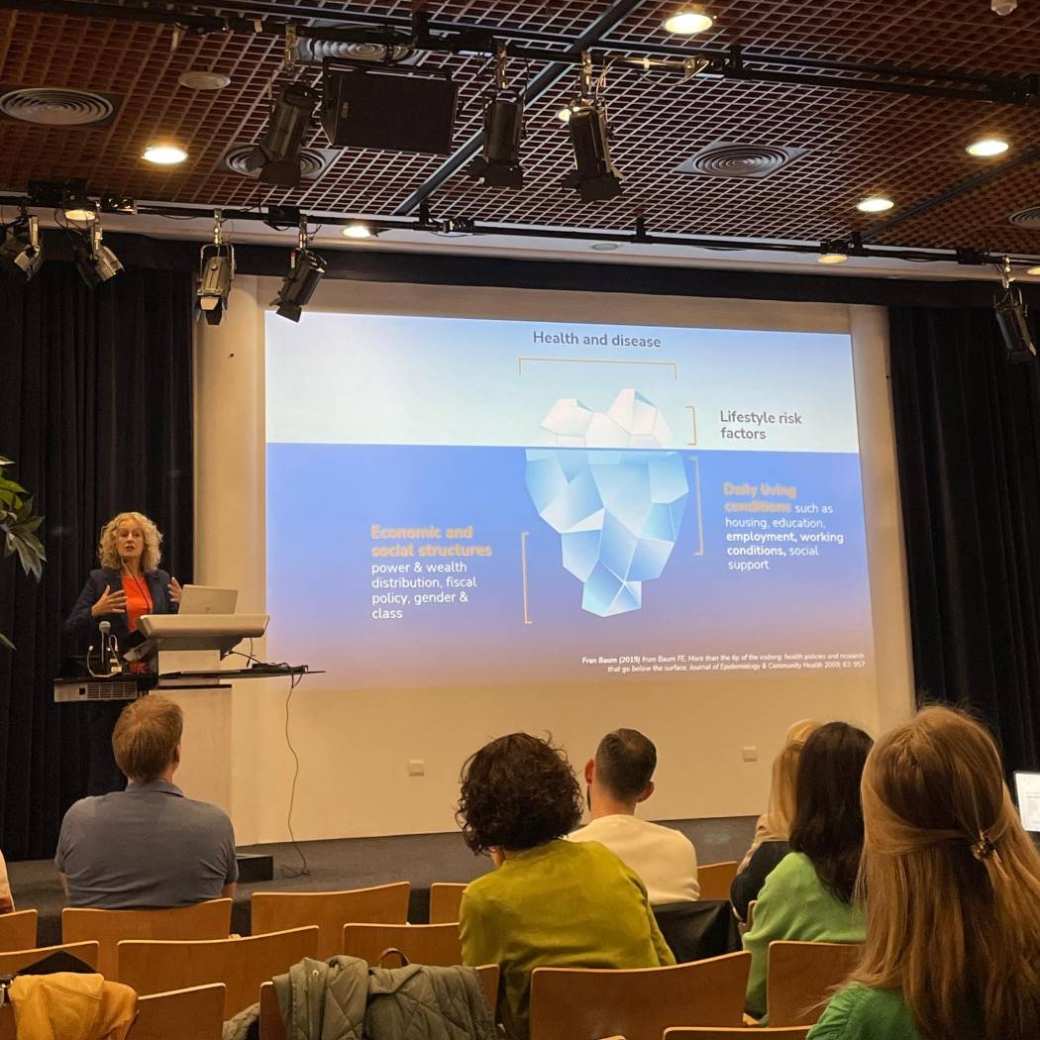Working on equal healthcare chances through education. Check out the new platform
After 3 years of working on it with heart and soul, the HEQED platform is now online. It is the starting point for a dialogue in education about equal opportunity in healthcare. It encourages future professionals to look at social issues through different lenses.

Can you guarantee the stability and safety of your client or patient? Are their rights as a human being respected? Can the person to whom you provide healthcare or services actually participate? These are a few ways to explore the cases on the HEQED platform in class. Always from a different perspective.
Many-headed monster
That diversity of perspectives or "lenses" is at the heart of HEQED (health equity through education for a sustainable society), the Erasmus+ project from which the platform emerged. "Such a broad view is needed to tackle a many-headed monster like socioeconomic health disparities", argues Joost Wijchen, associate professor of Physiotherapy & Health at HAN and HVL. In a consortium of several European higher education institutions and an NGO (Handicap International), he and other colleagues from several HAN schools have been working for the past few years on an approach to creating equal opportunities through education.

In class
The knowledge and experience of all those partners has now come together in the HEQED platform, which is now online. Joost: "You'll find explanations of the "lenses" we named together: human rights, ontological security, social justice, wellbeing of the planet, and participation and inclusion. So in addition, there are cases there that you can discuss as a class or in a group of professionals. That's how you challenge each other to get out of your comfort zone."
Baby Maria
Take the case of premature baby Maria and her Colombian mother Alejandra. Maria ends up in a Spanish hospital with withdrawal symptoms. She turns out to test positive for cocaine, after which Alejandra may be removed from parental custody. Is there any prejudice about Alejandra's origins? What if baby Maria is no longer given breast milk but powdered milk from now on? How will that affect her health and the environment? Joost: "These are the frameworks within which you as a professional will soon be working. The platform helps you start the dialogue with in-depth questions. The idea is that you develop an antenna for factors that affect health equity. And that you learn to act accordingly."
Battle continues
Now that the platform is ready for use, HEQED is complete as a project. Although health equity is never finished, as Joost emphasized during the closing HEQED event. "Creating equal opportunities is something we have to keep fighting for. This also means that the HEQED approach and platform will continue to evolve. It is quite conceivable to add a 6th lens in addition to the existing 5 lenses. Or a 7th. That of wellbeing economy for example, as Caroline Costongs (director of EuroHealthNet, ed.) so eloquently suggested during her keynote at the closing event". Because sometimes decisions are simply driven by money. As a future professional, you have to have an eye for that too.

Storytelling
The same Caroline Costongs, by the way, is delighted with the project's outcomes. "The HEQED platform is a good conversation starter. Also because it’s based on real stories. We tend to work on the basis of facts, data and scientific research. HEQED contrasts that with storytelling and narrative creating. It's an interesting way to look at health disparity issues and get smarter together".
Fewer assumptions
Meike Geurtsen is also enthusiastic about the platform. She was involved in a kick-off meeting in the early stages of HEQED as a physiotherapy student. And she’s already been checking out the platform. "I think it's a great tool to get students thinking about the influences of social origin, ethnicity, gender and education level, for example. Even if you take just a little of that knowledge into your internship or work, you’ll be less likely to make assumptions about your clients. And you’re more able to think from their perspective. That's valuable either way."
The HEQED project aligns with HAN’s key area Fair Health, which focuses on reducing socioeconomic health disparities. It also ties in well with one of the 6 strategic goals from HAN’s institutional plan Charting our Course: students become socially engaged global citizens.
